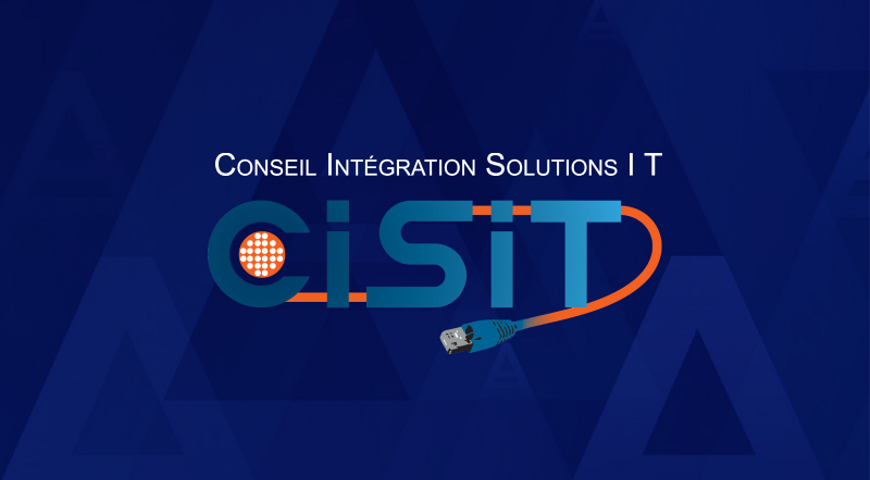
Executive Summary
This blog extensively reviews the architecture of immutable storage and its benefits as a storage solution for data management and security. It also highlights the best practices for using immutable storage as a cloud storage solution and its future potential. Corporate organizations can depend on this whitepaper as a guide for the implementation of immutable storage solutions to guarantee their data is secure, unchangeable, and durable for the long term. By following the immutable storage best practices discussed, you can improve the reliability of your data management systems, ensure compliance, and foster trust while reducing your overall costs.
Introduction
The recent exponential increase in data volumes and cyberthreats have created the need for improved data storage solutions and corresponding regulatory requirements. Traditional storage solutions — such as hard disk drives and magnetic tapes — are susceptible to hacking, accidental modification or deletion, and system failure. Therefore, they can no longer guarantee the security of stored data.
One emerging solution is immutable storage, which makes sure data cannot be modified or deleted after being written. It preserves data in a "read-only" state, thus providing a secure, tamper-proof version of the original data that companies can access when needed.
What Is immutable storage?
Immutable storage is a method of storing data where the data, once written, cannot be altered. This means that any change made to the data does not overwrite existing data; essentially, changes create new data.
Several industries have been increasingly adopting immutable storage, especially those handling sensitive data since it ensures data security and integrity over time. Immutable storage guarantees that data remains unmodified by both authorized and unauthorized users — even when associated accounts or systems have been compromised. This makes it a game-changing technology for safeguarding critical data.
How immutable storage works
The technical architecture of immutable storage systems involves a combination of hardware, software, and security mechanisms that work together to ensure data immutability. It leverages advanced data storage technologies, such as write once read many (WORM), that are tunable at both the hardware and software levels. These are, in turn, often backed by innovations such as access control policies and versioning to guarantee data is unchangeable.
Versioning enables users to view previous versions of data. This makes sure that even if data is accidentally overwritten, previous versions of the data can be retrieved. Similarly, access control mechanisms, including multi-factor authentication (MFA) and role-based access control (RBAC), ensure that only authorized users can view protected data.
Distributed storage is another part of an immutable storage architecture. It provides fault tolerance by storing data across multiple nodes or servers instead of on one physical device.
An immutable storage system leverages additional data storage techniques to enforce data security, authenticity, and immutability, such as cryptographic hashing, content-addressable storage, and digital signatures. For example, content-addressable storage uses data hashing by creating a unique identification code: a message digest that represents the original data or file. The software also generates a digital signature that indicates that the data is unaltered and authentic. Once the data is sealed and stored, it cannot be changed or deleted without modifying the content’s addressable storage identifier.
These techniques are critical for the advanced data protection required within the financial, medical, and legal fields.
Traditional storage vs. immutable storage
Traditional storage and immutable storage vary significantly in design, functionality, and uses. Below are some differences that highlight the superiority of immutable storage solutions.
Data integrity
When stored on a traditional storage solution, sensitive data is susceptible to corruption or alteration due to software bugs, cyberattacks and hardware faults. Immutable storage eliminates these possibilities.
Efficiency
Traditional storage requires frequent backup and replication to safeguard data. This process can be time-consuming and expensive, requiring significant backup storage space. Immutable storage avoids the need for frequent backups by creating a verifiable data store that reduces backup and replication requirements.
Data security
Traditional storage solutions rely on access control policies and traditional write-and-delete permissions to protect user data. This approach can be risky, as users with access can change or even delete data. In contrast, immutable storage solutions incorporate multiple security features to ensure data remains unmodified and secure. These include ransomware-proof measures such as write-once media / filing systems, data encryption and access control mechanisms.
Data management
Because traditional storage solutions often involve resource-intensive complex data management processes, organizations need extra backup, replication and version control tools. Immutable storage systems are all-in-one, automatically creating and managing data and eliminating the need for additional data management tools.
Performance
With traditional storage systems, performance may be impacted as datasets grow, manifested, for example, by increased query response times and latency. Immutable storage systems are typically designed to deliver consistent performance — even as datasets expand — by implementing distributed computing and other techniques to maximize performance and reduce latency.
Use cases
Traditional storage solutions are well-suited for personal to enterprise-level databases. Immutable storage solutions, on the other hand, are more commonly found in sectors such as finance, healthcare, and government, where data compliance and security are paramount.
Scalability
Traditional storage may require large amounts of storage space to accommodate backup and replication activities, making it inefficient in the long term. In contrast to this, immutable storage solutions are space-efficient since they rely on data deduplication, compression, and other techniques to minimize storage needs. Designed with scalability in mind, immutable storage incorporates distributed systems and cloud-based infrastructure to ensure that it can handle increased usage. This makes it an ideal solution for corporate organizations with complex data management and rapidly growing storage requirements.
Compliance
Immutable storage is a perfect solution for IT, healthcare, or finance companies where strict regulatory compliance is required. Certain regulatory bodies such as HIPAA and GDPR, for instance, demand that organizations adopt tamper-proof data storage solutions—an example of which is immutable storage—for client/user private information managed by the organization. Since data is not modified or deleted in this storage method, it provides an accurate and reliable record that can be used to meet regulatory and legal data requirements.
Further benefits of immutable storage for data security
Immutable storage provides an unparalleled level of security for sensitive data via the following means.
Data versioning
Versioning enables users to access and restore previous versions of data. This can be useful in cases of system failure and disaster, where data becomes unexpectedly erased.
Data encryption
Immutable storage systems incorporate data encryption to secure data at rest, in transit, and during backups so that only a user with the decryption key can read it. Encryption therefore ensures data confidentiality and security.
Access control
Immutable storage systems utilize access control policies to guarantee that only those with the proper credentials will be able to view and use sensitive data.
Data consistency and resilience
By eliminating the possibility of accidentally modifying stored data, immutable storage guarantees data consistency and ultimately increases data security. Data resilience techniques such as fault tolerance, data replication across multiple sites, and automatic failover also ensure data security.
Use cases for immutable storage solutions
The table below highlights how various industries leverage immutable storage to improve their data management and security.
Immutable storage for cloud: Key benefits
Cloud storage providers are increasingly integrating immutable storage into their infrastructure for three reasons:
- Immutable cloud storage supports various regulatory and compliance standards such as HIPAA, PCI DSS, GDPR, and the Sarbanes-Oxley Act (SOX).
- Since the data is immutable, there is no need for replication, making it a cost-effective solution.
- Its sophisticated features give CSPs a competitive edge.
Immutable storage for data backup and retention: Key benefits
Immutable storage provides an excellent solution for data backup and retention because it guarantees that once it is stored, data will not be modified in any way or erased. This makes the storage system a superior, secure, and reliable solution.
Immutable storage uses error-correcting codes to protect data from corruption, thus enhancing data integrity and reliability.
Through its tamper-evident chain of custody, immutable storage facilitates compliance with data retention-related regulatory requirements such as SEC 17a-4, HIPAA, GDPR, and SOX. It therefore reduces the risk of litigation by providing an immutable data trail companies can use as evidence of data transactions or events.
Since immutable storage is a technology that allows data to be kept at a low cost for long periods, organizations can easily access data for analysis, and perform audits without much processing or decoding. This enhances data analysis and reporting capabilities, enabling organizations to make informed decisions.
Best practices for implementing immutable storage
Whether you are using immutable cloud storage for data security or management, below are some key best practices to consider. By strictly following these, organizations can ensure that their storage solution meets both their current and future needs while providing optimal data security and a robust data management platform.
Conduct thorough data and resource analysis
Before implementation, data analysis is necessary to classify data, determine its retention requirements, and evaluate the scalability and performance of the chosen immutable storage system. This will help identify the most suitable system to support your data protection and management goals. It will also align your data storage needs with your budget and resources.
Ensure data retention and regulatory compliance
Data retention policies vary by industry. To comply with these, make sure that the selected immutable storage solution meets the required retention periods. This will protect your data from cyberthreats and your organization from legal fees or sanctions.
Classify data
To assess what level of protection your data requires, you will need to classify your data according to how sensitive it is. In relation to this, mapping out the data lifecycle and creating the appropriate retention and usage policies are critical.
Select appropriate encryption techniques
Immutable storage systems require an exceptional level of encryption to provide maximum data integrity and security. The right encryption methods should be based on the level of data sensitivity, workload size, and performance consideration. The encryption algorithms must be strong enough to resist brute-force attacks and updated periodically to remain secure.
Implementing multilayered encryption is also critical. This involves using different encryption algorithms, as well as applying a combination of symmetric and asymmetric keys for different data types.
Institute a backup and recovery culture
Although immutable storage ordinarily provides an additional layer of protection, it does not confer absolute immunity against data loss, especially in the face of unavoidable disasters. This is why a strict backup and recovery policy is a must. With this in place, data can be restored to its previous state, reducing the impact of any adverse event.
The backup policy should include the method, frequency, and location of your data backups. The recovery policy entails a disaster recovery plan that helps minimize the impact of unforeseen disasters. This plan should cover how to access backups and what to do in the event of data loss or damage.
Explore distributed storage options
Organizations need to use distributed storage options to ensure data is stored redundantly across multiple locations, regions, or data centers. This enables quick data availability and guarantees adherence to service-level agreements (SLAs).
Monitor access control
Companies must implement, manage, and monitor access controls throughout the lifecycle of data. Strict access control policies are required to prevent any unauthorized access to your systems and data. Additional security measures such as firewalls and role-based access control should also be considered.
Implement data auditing
Immutable storage solutions must have built-in auditing capabilities to record every single transaction and instance of data access and transaction. Such auditing is also beneficial in meeting regulatory data compliance requirements.
Test performance and recovery regularly
Organizations should develop a comprehensive test plan for the selected storage technology to make sure it performs as expected. The plan should cover various scenarios and potential challenges during implementation. For instance, testing should verify that the storage solution can handle large files with no performance degradation, provide data privacy and integrity, and enable quick and reliable data recovery. Thorough tests help to minimize downtime and prevent data loss during implementation.
The future of immutable storage
Going forward, immutable storage looks like it will be an increasingly bright option as advances in technology and diverse use cases emerge. In this section, we cover some technological advancements with the potential to increase the demand for immutable storage.
Blockchain technology
Immutable storage and blockchain technology go hand in hand, as data can be stored via a distributed, peer-to-peer network that is resistant to unauthorized access or modification. Future advances in blockchain technology are bound to increase the adoption of immutable storage.
Distributed storage solutions
Future storage solutions will likely be more distributed, enabling users to store data across multiple networks or servers. Immutable storage will feature prominently in this shift, allowing users to store data via these distributed networks.
Advancements in AI and ML
As artificial intelligence and machine learning progress, they will create vast amounts of data. Immutable storage can preserve this data and support the development of algorithms to process and analyze large datasets.
Security and compliance
With increasing regulatory and legal compliance requirements, immutable storage will become the standard for companies that must store data long-term since it ensures that information remains unmodified, secure, and available for future use.
Emerging technologies
Technologies such as IoT, AR and VR will continue to generate vast datasets, most of which will require immutable storage in the near future.
Conclusion
Immutable storage offers many data management and security benefits to IT professionals and corporate organizations alike. It is crucial for cloud-based data backup, retention, and secure management. Companies looking to embrace effective data management and security should therefore consider integrating Acronis Cyber Protect into their data protection solution.
Acronis Cyber Protect provides comprehensive, cost-effective immutable storage that ensures long-term retention. It integrates backup and anti-ransomware technologies that guarantee data security and compliance, making it a suitable solution for businesses of all sizes.
Consider Acronis Cyber Protect for your immutable storage needs. Start your free trial today.
About Acronis
A Swiss company founded in Singapore in 2003, Acronis has 15 offices worldwide and employees in 50+ countries. Acronis Cyber Protect Cloud is available in 26 languages in 150 countries and is used by over 21,000 service providers to protect over 750,000 businesses.



